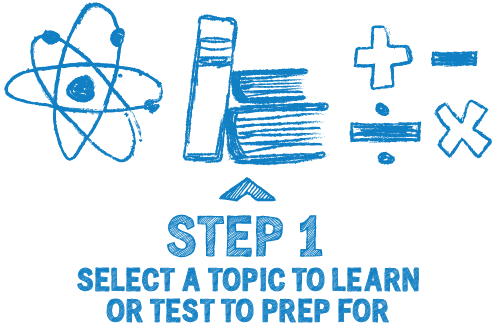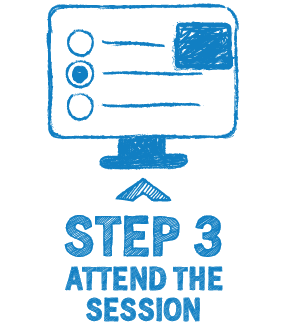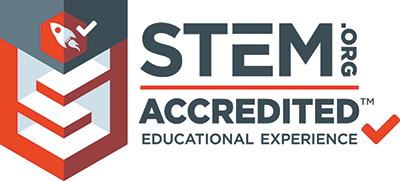The Scientific Method : 7 Steps, Worksheet, & Examples
Grade 7 Science Worksheets
The seven steps of the Scientific Method are:
- Make an Observation
- Ask a Question
- Conduct Research
- Form a Hypothesis
- Conduct Experiment
- Analyze Data
- Report Conclusions

eTutorWorld Online Tutoring
Scientific Method Worksheet 7th Grade Free PDF
This is a free printable / downloadable PDF worksheet with practice problems and answers. You can also work on it online.
|
Untimed | |
Sign up with your email ID to access this free worksheet.
"We really love eTutorWorld!"
“We really love etutorworld!. Anand S and Pooja are excellent math teachers and are quick to respond with requests to tutor on any math topic!” – Kieran Y (via TrustPilot.com)
"My daughter gets distracted easily"
“My daughter gets distracted very easily and Ms. Medini and other teachers were patient with her and redirected her back to the courses.
With the help of Etutorworld, my daughter has been now selected in the Gifted and Talented Program for the school district”
– Nivea Sharma (via TrustPilot.com)
The Scientific Method – Definition
The scientific method is used in scientific inquiry by scientists to answer questions and solve problems. It involves a series of steps that help them to investigate, experiment, and draw conclusions based on evidence. The scientific method is not just for scientists, anyone can use it in their everyday lives to solve problems and answer questions.
Steps of the Scientific Method – Diagram:

7 Steps of The Scientific Method – Explained with Example
Now let us understand the seven steps of the Scientific Method using the example of a potted house plant.
Step 1: Make an Observation
When you notice something interesting, you can say an Observation is Made. Scientific Observations trigger curiousity and interest to know more.
Example:
You got a potted house plant for your study table. You watered it every day, but it died.
Now you want to know more so that when you get a plant again, you can take care of it better.

Step 2: Ask a Question
When an interesting observation is made, you wonder why what you observed happened.
In the scientific method, you decide to find out the answer to this questions through research and experiments.
Example:
Why did the plant die, even though it was watered frequently.
Step 3: Conduct Research
Now you want to understand the topic better.
Maybe this topic was researched by someone before, and the answers are available in a book, video, or scientific article. So you first look for available information on the topic for the inquiry process.
Example:
After reading and talking to experts, you learn that potted house plants could die mainly due to 2 reasons:
- Not getting enough water
- Getting too much water
Step 4: Form a Hypothesis
A ‘hypothesis’ is an educated guess or a possible explanation.
Once you have a hypothesis, you can then design an experiment to test it and see if your prediction is correct or not.
Example:
You know that you watered the plant very well. The soil in your pot was never dry.
So your educated guess is that the plant died due to getting too much water.
Step 5: Plan & Conduct Experient
Conducting an experiment is the most difficult step in the Scientific Method. It is a way to test a hypothesis and gather evidence to support or disprove it. It is also a highly exciting process that students get to experience in school laboratories.
First, you have the hypothesis ready.
- Next, you need to design the experiment. This means figuring out what materials and equipment you will need, what procedures you will follow, and how you will measure your results.
- Then you conduct the experiment. This involves following your procedures carefully, making observations, and recording your results.
- Independent variable – A factor that is changed during a scientific experiment
- Dependent variable – A factor being tested or measured during an experiment
- Controlled variable – A factor that is kept the same during a scientific experiment
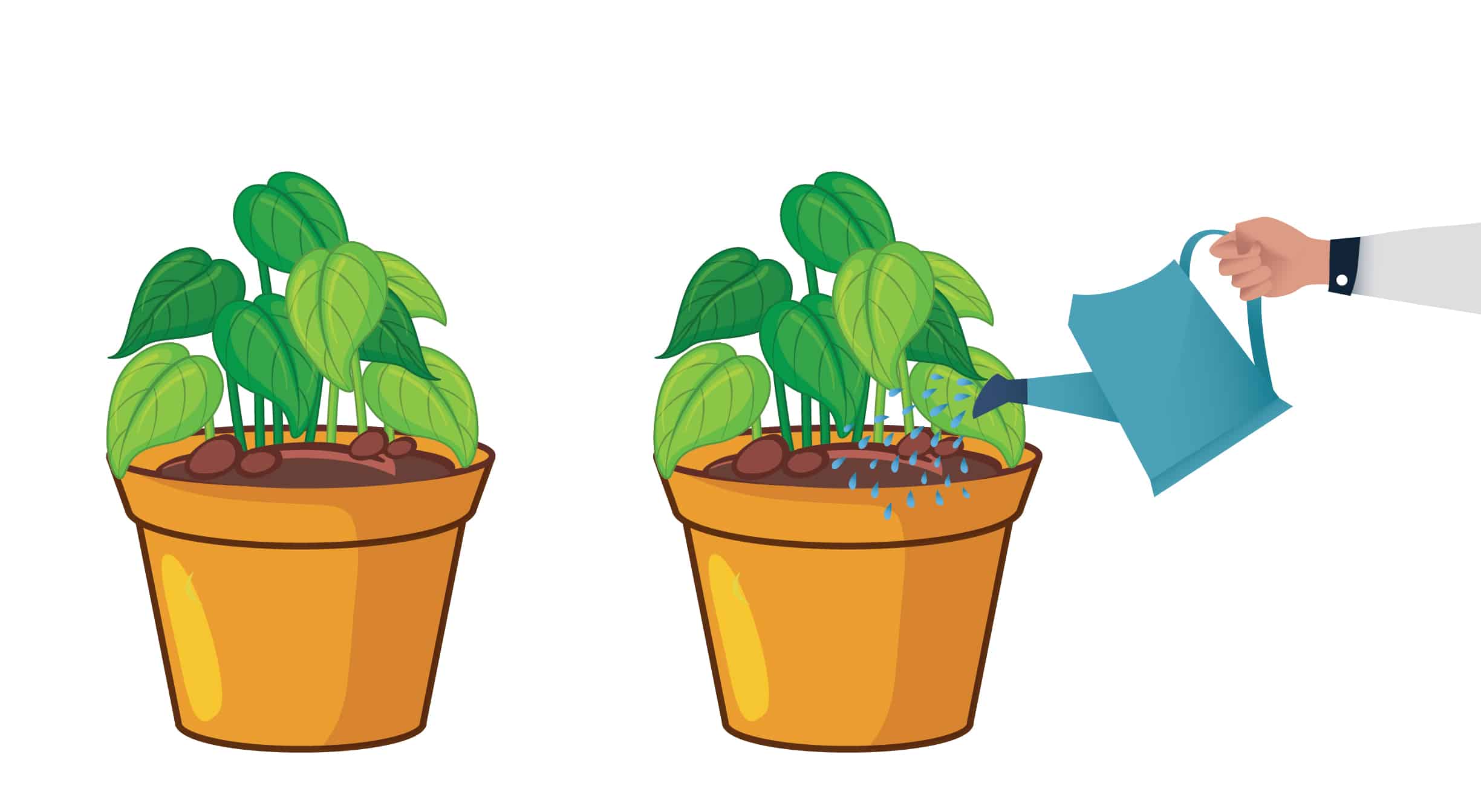
Example:
- Your hypothesis: Your plant died because of too much watering
- Design the experiment: You will get two plants and water them differently till one of them dies
- Materials and equipment needed: Two similar potted plants, name cards written with A and B, and a notebook
- Experiment: Water plant A like you did with your original dead house plant. Water B with half that amount.
- Record Data: During the experiment, record the daily observations on a notebook. You can make a table with two columns for Plant A and Plant B. Note down different factors – date, volume of water given, leaf and stem strength, leaf colour
- Independent variable – Amount of water suplied to each plant
- Dependent variable – Colour and strenth of leaves
- Controlled variable – Type and size of plants, pot, sunlight, soil quantity
Step 6: Analyze Data
In this stage, data collected during the experiment is anlaysed. The goal is to know whether the data proves the hypothesis or disproves it. This involves:
- Explaining the data gathered from the experiment.
- Observations, information and data are collected from the experiment.
- Use of pictorial representation via charts, graphs, averages, percentages, etc.
(learn more about analyzing and representation of data from our math tutors.)
Example:
The data collected show that Plant A and B were healthy at the start of teh experiement.
It shows that Plant A, which received more water, started becoming unhealthy by week 2 – its leaves changed colour, its stem became weak.

Step 7: Report Conclusions
A report is created at the end of the experiement. It will have data, conclusions, and diagrams. It is presented to an authority on the topic for review
The report should say:
- Is the data and mesaurement correct? What are the possible sources of error?
- Does the data (answer) support the hypothesis? Why or why not?
If the data does not prove or disprove the hypothesis, a new experiemnt needs to be designed and conducted. Sometimes, new factors of the same problem can be researched and studied

Example:
Conclusion:
Plant A, which received the same water as the original potted plant, died. Plant B, which received less water than Plant A, survived.
This supports the hypothesis that the original potted plant died due to over-watering.
The experiment is successfully concluded
“There have been times when we booked them last minute, but the teachers have been extremely well-prepared and the help desk at etutorworld is very prompt.
Our kid is doing much better with a higher score.”
7th Grade Tutoring
eTutorWorld offers Personalized Online Tutoring for Math, Science, English, and Standardised Tests.
Our Tutoring Packs start at just under $21 per hour, and come with a moneyback guarantee.
Schedule a FREE Trial Session, and experience quality tutoring for yourself. (No credit card required.)
Practical Applications of the Scientific Method
Here are some practical uses of the scientific method:
Solving problems: Scientists use scientific method to systematically solve problems in the world around us. For example, if a scientist wants to find a way to clean up pollution in a river, they might use the scientific method to design experiments and test different solutions until they find one that works.
(Now we know how scientific method helps to solve problems around us. Also learn how math tutoring helps in solving math problems)
Exploring the unknown: Scientists also use the scientific method to explore and discover new things. For example, if a scientist wants to study a new type of plant, they might use the scientific method to observe and collect data about the plant’s growth and behavior, and then use that data to draw conclusions about the plant’s characteristics.
Improving technology: The scientific method is also used to develop and improve technology. For example, if a scientist wants to develop a new type of solar panel, they might use the scientific method to experiment with different materials and designs until they find one that produces the most energy.
Understanding natural phenomena: The scientific method is used to better understand the natural world around us. For example, if a scientist wants to understand why hurricanes form, they might use the scientific method to collect data and test different theories until they find one that explains the phenomenon.
Overall, the scientific method is a powerful tool that helps scientists to ask questions, gather evidence, and draw conclusions based on facts and evidence. It helps us to better understand the world around us and solve complex problems that affect our daily lives.
Scientific Method Example
The Steps of the Scientific Method are used as an ongoing process to make new discoveries. Thomas Edison’s team tested 6000+ materials before identifying one that can be used to make cheap long lasting light bulbs.
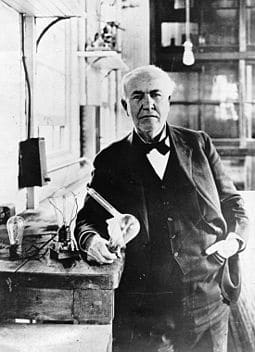
The team repeated the scientific method 6000+ times with different materials for this invention. Scientists still use this method today to make new discoveries and inventions!
Reference: https://historyengine.richmond.edu/episodes/view/5609
Practice Problems
1. What are Independent Variables?
2. What are Dependent Variables?
3. What are controlled variables?
Put your knowledge to the test with our challenging Science Worksheets!
Do You Stack Up Against the Best?
If you have 30 minutes, try our free diagnostics test and assess your skills.
Frequently Asked Questions
What is the Scientific Method?
The Scientific Method is a 7-step observation and evidence based method to understand the world and invent new things. The seven steps of the Scientific Method are:
- Make an Observation
- Ask a Question
- Conduct Research
- Form a Hypothesis
- Conduct Experiment
- Analyze Data
- Report Conclusions
What is 'forming a question'?
Based on your observations, develop a problem statement that can be solved by the process of experimenting. Usually a “How’ or “Why” question?
How to test your hypothesis?
Hypothesis is tested using scientific experiments. A set of repetitive methods is developed to conduct the experiment. The main aim is to test our hypothesis by collecting the facts and data. Includes variables – a measuring quantity that is used or changed during the experiment.
What are the types of variables used in the experiment?
Independent variable and dependent variable.
How will you analyze data?
Observations, information and data are collected from the experiment. Organize the data and show with the calculations. Explain the data gathered from the experiment. Use of pictorial representation via charts, graphs, averages, and percentages
Kathleen Currence (Author)
Former School Principal
Kathleen Currence is one of the founders of eTutorWorld. Previously a middle school principal in Kansas City School District, she has an MA in Education from the University of Dayton, Ohio. She is a prolific writer, and likes to explain Science topics is student-friendly language. LinkedIn Profile
References
- https://historyengine.richmond.edu/episodes/view/5609
- https://en.wikipedia.org/wiki/Scientific_method#/media/File:The_Scientific_Method.svg
Affordable Tutoring Now Starts at Just $22.49
eTutorWorld offers affordable one-on-one live tutoring over the web for Grades K-12. We are also a leading provider of Test Prep help for Standardized Tests (SCAT, CogAT, MAP, SSAT, SAT, ACT, ISEE, and AP).
What makes eTutorWorld stand apart are: flexibility in lesson scheduling, quality of hand-picked tutors, assignment of tutors based on academic counseling and diagnostic tests of each student, and our 100% money-back guarantee.
Whether you have never tried personalized online tutoring before or are looking for better tutors and flexibility at an affordable price point, schedule a FREE TRIAL Session with us today.
*There is no purchase obligation or credit card requirement
Grade 7 Science Worksheets
- Elements and Compounds
- Solar Energy
- Photosynthesis
- Electricity and Magnetism
- Law of conservation of energy
- Periodic table
- Properties of Matter
- Waves
- Energy Resources
- Weather and Climate
- Immune, Circulatory and Digestive Systems
- Organs in Multi-cellular Organism
- Sedimentary, Igneous, and Metamorphic Rocks
- Structure of the Earth
- Law of Conservation of Mass
- Physical and Chemical Changes
- Scientific Method
- Human Digestive System
- Environmental Science
- Renewable and Non-renewable energy Resources
- Characteristics of Living Organisms
- Life Science
- Earth and Space Science
- Solar Eclipse
- Heat Technology
- Newton’s Laws of Motions
- Physical Science
- Tools, Measurement and SI Units
- Earth Atmosphere
- Interactions of Living things
- The Earth Ecosystem
- Organelles in Plant and Animal cells
- Layers of the Earth
- Cycles in Nature
Grade 7 Math Worksheets
- Fractions
- Linear equations word problems
- Statistics
- Properties of Parallel Line
- Finding slope from an equation
- Identifying Quadrilaterals
- Percent Change
- Properties of addition and multiplication
- Pythagorean Theorem
- Solving two step inequalities
- Symmetry
- Fractions to Decimals (New)
- Whole Number Exponents with Integer Bases (New)
- Adding and Subtracting Fractions (New)
- Integer Addition and Subtraction (New)
- Dividing Mixed Numbers (New)
- Basics of Coordinate Geometry (New)
IN THE NEWS

Our mission is to provide high quality online tutoring services, using state of the art Internet technology, to school students worldwide.
Online test prep and practice
SCAT
SSAT
ISEE
PSAT
SAT
ACT
AP Exam
Science Tutoring
Physics Tutoring
Chemistry Tutoring
Biology Tutoring
Math Tutoring
Pre-Algebra Tutoring
Algebra Tutoring
Pre Calculus Tutoring
Calculus Tutoring
Geometry Tutoring
Trigonometry Tutoring
Statistics Tutoring
Quick links
Free Worksheets
Fact sheet
Sales Partner Opportunities
Parents
Passive Fundraising
Virtual Fundraising
Our Expert Tutors
Safe and Secure Tutoring
Interactive Online Tutoring
After School Tutoring
Elementary School Tutoring
Middle School Tutoring
High School Tutoring
Home Work Help
Math Tutors New York City
Press
©2022 eTutorWorld Terms of use Privacy Policy Site by Little Red Bird
©2022 eTutorWorld
Terms of use
Privacy Policy
Site by Little Red Bird

